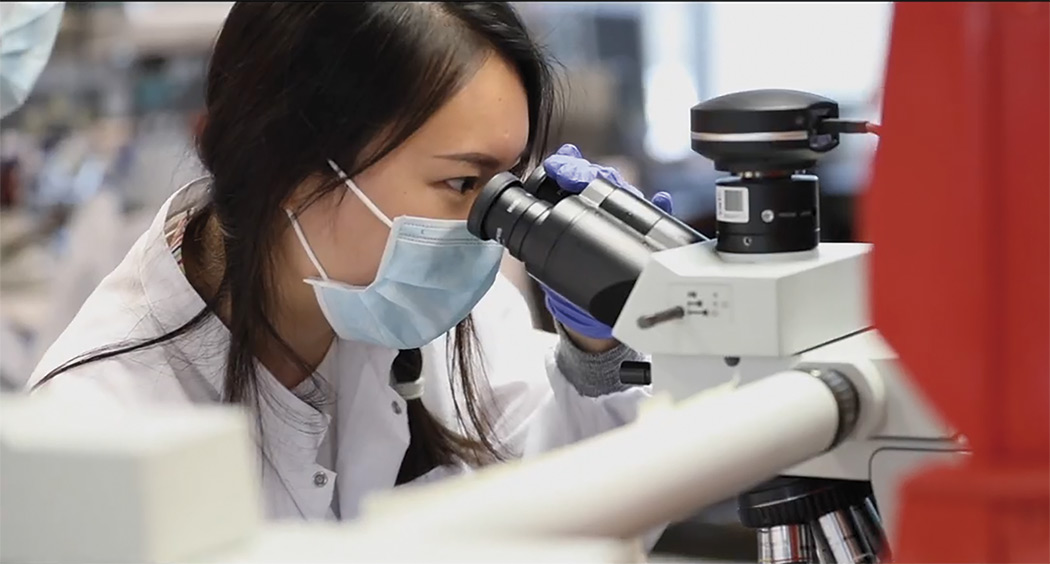Development of trials for the detection of antibodies against SARS-COV-2 in serum

To develop and validate new diagnostic tests for antibodies against coronavirus with proven and improved sensitivity and specificity. That is the project which the CNIC group led by Dr. Miguel Torres is working on, in collaboration with other groups at the center, such as Dr. Jorge Alegre’s and Dr. María Montoya’s groups, as well as with Dr. Óscar Llorca of the CNIO.
“We have fine-tuned the Elisa technique so that it is possible to detect immunoreactivity with the spike protein and with the nucleocapsid protein,” explains Dr. Torres.
The CNIC team has already tested 1,000 samples from volunteers participating in the PESA-CNIC-Santander cohort whose serums were collected before the start of the pandemic.
The PESA-CNIC-Santander is a prospective cohort study in which more than 4,000 middle-aged individuals are controlled long term thanks to the use of the most innovative imaging techniques and whose main purpose is to characterize the prevalence and rate of progression of latent atherosclerotic lesions and to study their association with molecular and environmental factors, including eating habits, physical activity, biorhythms, psychosocial characteristics and exposure to environmental pollutants.
The analyis of these serums, explains Dr. Torres, has allowed us to establish the incidence of false positives of this technique, which are very few, “below 1%, which is really very low.”
The innovation of the CNIC project is that its test is capable of distinguishing the two immunities when using two proteins; spike, the protein targeted by all the COVID-19 vaccines approved so far, “with which we can detect the immunity generated by these vaccines,” and the nucleocapsid protein, which in principle “none of the vaccines immunize you against that protein.”
With the test validated at the CNIC, it will be possible to differentiate whether a person, in addition to having been vaccinated, has also passed the infection.
Dr. Torres points out that most of the tests currently used do not distinguish between these two proteins and are made for spike, which would not distinguish one immunity from the other, beforehand, because the natural immunity may be different.
Once established and validated, these Elisa tests will be made available to the public health system and the CNIC is exploring the possibility of their commercial development in collaboration with some national companies.
The next step, says Dr. Torres, will be to analyze a sufficient number of samples from those same people obtained during the pandemic. Thus, “what we hope to detect is the number of individuals who are already immunized because they have suffered the infection, so that they can be selected for inclusion in vascular imaging studies with SARS-CoV-2 infection.”
It is known that people who are in the acute phase of infection show a greater tendency to atherogenesis. But what is unknown, says Dr. Torres, is whether, in the long run, asymptomatic people may have a worse evolution of atherosclerosis, or if, those who have not passed COVID-19, the long-term progression of atherosclerosis differs in people who have had the disease with symptoms and who, during the acute phase, have not had thrombi or any vascular complications.”
With the test validated at the CNIC, it will be possible to differentiate whether a person, in addition to having been vaccinated, has also passed the infection
The CNIC is exploring the possibility of their commercial development in collaboration with some national companies
Thanks to the PESA-CNIC-Santander study, these patients’ arteries can be monitored with imaging techniques. “In this way,” says the CNIC expert, “we can establish whether such a relation exists or determine that there is no long-term implication and that all the complications that arise are acute and do not compromise long-term health.”
The information obtained will be important, says Dr. Torres, because, if such relation exists, “then having passed COVID-19 would be an indication to be especially cautious and consider it as a risk factor for atherosclerosis similar to the traditional ones.”
Furthermore, Dr. Torres’s group is in contact with hospitals and also those responsible for autonomous communities in case they need follow-up collaboration, both for natural immunity and the immunity produced by vaccines.
The project has been carried out with the collaboration of the CNIO, La Princesa Hospital of Madrid and Clínico Hospital of Madrid, which contributed with 100 serums and with which the CNIC has signed an agreement with the approval of the ethics committee.
“Right now we are collecting the samples from these 1,000 people and when we have 500 serums we will conduct a first trial,” says Dr. Torres, who highlights that since it is the serum from the same person obtained at different times, “we can analyze the reactivity that existed before COVID-19 and the one it has now.”

















